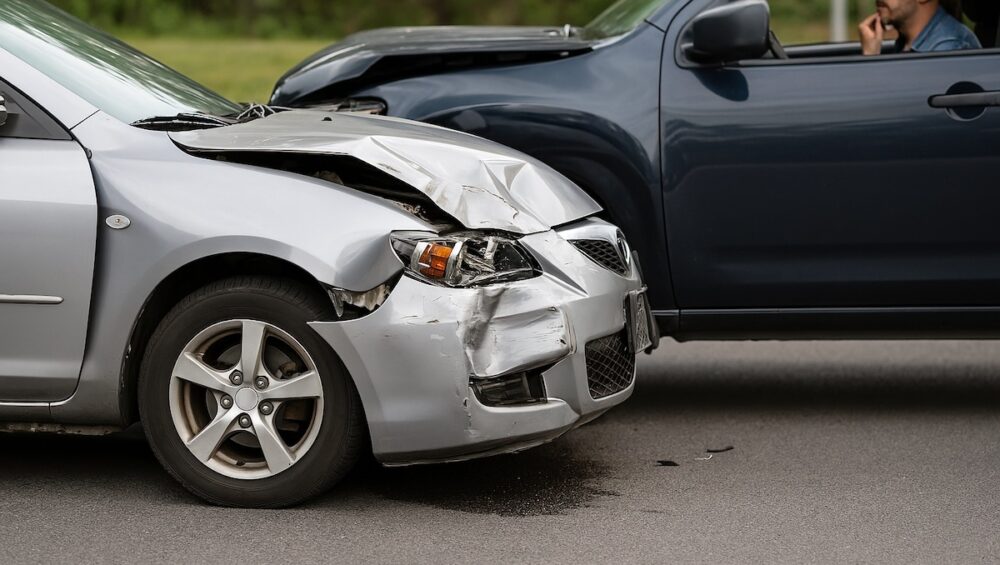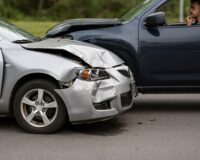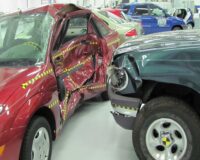When your vehicle is involved in a collision, the words used to describe the event can carry more weight than you might think. Whether someone refers to it as an “accident” or a “crash” may seem like semantics, but the terminology actually plays a significant role in shaping public perception, determining responsibility, influencing insurance claims, and even affecting the work we do in the collision repair industry.
In this guide, we’ll explore the difference between “accident” and “crash,” why the distinction matters, and how it directly impacts the collision repair process. If you’ve ever wondered why a simple word choice can carry such big implications, read on.
Understanding the Terminology
What is an “Accident”?
The term accident traditionally implies that something happened unintentionally—without anyone being at fault. It’s the word many people instinctively use when they talk about a vehicle incident. For example:
“I was in an accident on the freeway this morning.”
While this phrasing feels natural, it carries a subtle suggestion that the event was unavoidable or blameless. This framing can affect how drivers view themselves and others involved in a collision, often leading to an assumption that “it just happened.”
What is a “Crash”?
The word crash, on the other hand, paints a more direct picture. It implies a forceful impact and is frequently used in law enforcement, traffic safety campaigns, and legal contexts. For example:
“A crash involving two vehicles shut down the intersection.”
“Crash” doesn’t inherently assign blame, but it doesn’t erase it either. It shifts the focus from a passive occurrence to a more active event, potentially caused by negligence, distraction, or a traffic violation. Because of this, some safety advocates and legal professionals prefer it—it emphasizes accountability and helps prevent dangerous driving behaviors from being dismissed as mere “accidents.”
Why Terminology Matters in Collision Repair
Perception of Responsibility
The words people use can change how responsibility is viewed. If you’re told it was “just an accident,” you might not feel compelled to consider the deeper causes—whether that’s distracted driving, speeding, or poor road conditions. On the other hand, calling it a “crash” can trigger a more investigative mindset.
For collision repair professionals, this distinction matters. Clients may come in believing no one was at fault, only to be surprised when insurance or law enforcement sees things differently. Managing expectations becomes a key part of our job.
Insurance Implications
Insurance companies analyze every detail of a collision—including the terminology used in police reports and claim filings. Here’s how this plays out:
- Reports labeled as a crash may be treated with more scrutiny, as they often involve clear assignment of fault.
- Describing something as an accident might slow down the claims process if the insurer needs additional proof of who was responsible.
While the outcome of your repair doesn’t change based on wording, the speed and simplicity of the insurance process can be affected. It may even influence your deductible or whether the claim gets approved at all.
Legal and Policy Considerations
Across the country, there’s a growing movement to replace the term “accident” with “crash” in official documentation. Cities like New York and San Francisco have adopted this language shift as part of Vision Zero initiatives, aiming to reduce traffic fatalities by treating crashes as preventable incidents rather than unavoidable acts of fate.
From a legal perspective, using the term “crash” can help frame an event in a way that allows for deeper investigation and, when necessary, appropriate accountability. If a shop like ours receives a work order based on a legal case or insurance settlement, this distinction becomes more than a word—it’s a reflection of the legal foundation of the claim.
Effects on Collision Repair Shops
Communication with Clients
In the repair business, clear communication is everything. Clients who come in saying, “I had a small accident” may be taken aback when they see a repair estimate that’s thousands of dollars. This is where terminology education comes in.
By gently explaining the difference between an “accident” and a “crash,” we can set the right tone for managing expectations and walking customers through the repair and claims process.
Estimating Damage and Determining Responsibility
When we assess damage after a collision, the details in police reports matter. Reports that use “crash” language often contain clearer descriptions of what happened, making it easier for us to:
- Match visible damage to what’s described in the report
- Provide more accurate repair estimates
- Understand how the force of impact may have affected vehicle alignment or frame structure
This doesn’t change the quality of our work, but it helps us deliver it faster and more efficiently.
Marketing and Branding
You may have noticed that most shops now use terms like collision repair center rather than accident repair shop. That’s no coincidence.
Words like collision or crash are more aligned with insurance industry language and SEO-friendly search terms. As more people look for “crash repair near me” or “collision repair services,” businesses are adapting their messaging to reflect these trends.
At Pole Position Autobody, we’ve embraced this shift not only because it aligns with industry best practices, but also because it helps us communicate clearly and accurately with our clients and partners.
Public Safety and Cultural Impact
Shifting Toward Accountability
Replacing “accident” with “crash” helps emphasize that most traffic collisions are preventable. Whether it’s distracted driving, running a red light, or speeding, the majority of vehicle crashes result from human error—not chance.
That’s why terminology matters. It’s not about blaming people; it’s about acknowledging that we can change behaviors and reduce future crashes through awareness and responsibility.
Education and Awareness Campaigns
Organizations like the National Highway Traffic Safety Administration (NHTSA) and insurance companies are encouraging the use of “crash” in educational materials. Collision repair shops also play a role in this movement by helping clients understand the significance of the terms they use—and how those words influence the outcome of their repairs and claims.
Choosing the Right Term in Your Business
Understanding Your Audience
If you run or work at a repair shop, listen to the language your customers use—but don’t be afraid to educate them. When appropriate, explain how using “crash” instead of “accident” might better reflect the event and help avoid confusion with insurers or adjusters.
Training Staff for Consistent Language Use
Team communication matters. Everyone in your shop—from receptionists to estimators—should be aligned in how they speak about vehicle damage. This keeps your messaging consistent and helps build credibility with clients and insurance companies alike.
FAQs
Why do some experts prefer the term “crash” over “accident”?
Experts believe “crash” acknowledges the preventable nature of most traffic incidents and emphasizes accountability, whereas “accident” implies no one is at fault.
Does the term use affect how insurance handles a claim?
It can. Insurance companies take cues from police reports and claims language. A “crash” may be more likely to result in a fault determination, while an “accident” might require further investigation.
Should my auto repair shop use the term “accident” or “crash”?
Using “crash” or “collision” is becoming the industry standard and helps align with legal and insurance terminology.
What term do police typically use in reports?
Most law enforcement agencies now prefer “crash” in official reports, especially when injury or fault is involved.
How can the terminology impact legal outcomes after a collision?
The use of “crash” can shape the narrative in legal cases, suggesting the event was avoidable and possibly due to negligence.
Conclusion: From the Team at Pole Position Autobody
At Pole Position Autobody, we understand that a vehicle collision is more than just a disruption—it’s a stressful experience that affects your mobility, finances, and peace of mind. That’s why we take every aspect of the repair process seriously—including the language we use.
We choose to say “crash” or “collision” because it reflects the seriousness of the event and aligns with the expectations of insurance providers, law enforcement, and our valued customers. It also helps us stay ahead in an evolving industry where accuracy and accountability matter.
Our expert team is here to walk you through every step, from estimating damage to dealing with your insurance provider. Whether your vehicle experienced a minor fender bender or a major crash, we’re here to restore it with precision, professionalism, and care.
If you’ve recently been in a crash, trust Pole Position Autobody to get you back on the road—safely, quickly, and confidently.





